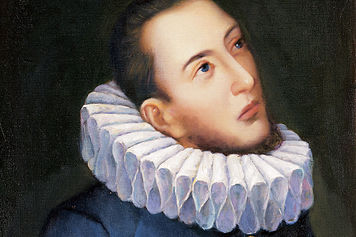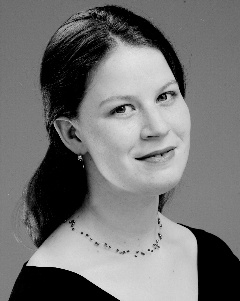Passion at the Washington Early Music Festival
By Stephen Brookes • The Washington Post • July 11, 2011
W
hat’s with the early-music crowd? Doesn’t it know that when you put on a gala, you’re supposed to have champagne, limousines, Balenciaga-dressed celebrities and herds of paparazzi? Alas, there wasn't a single outsized ego at the Washington Early Music Festival’s fundraising gala Saturday night. In fact, there was no pomp at all, just three hours of extraordinary, evocative and often riveting music from some of the area’s most interesting performers. What a drag. Carlo GesualdoMaybe it’s early music’s resolutely anti-glam quality that makes it so appealing; at any rate, the event at St. Mark’s Episcopal Church, titled “Vices & Virtues: Music of Passion From Early Europe,” was an almost intimate affair in spite of its large size, with the audience seated closely around the performers. No fewer than nine vocal and chamber ensembles took part, performing secular music from the 13th century (the obscure Blanche de Castille) to the 18th (the less obscure Ludwig van Beethoven), on original instruments.
Carlo GesualdoMaybe it’s early music’s resolutely anti-glam quality that makes it so appealing; at any rate, the event at St. Mark’s Episcopal Church, titled “Vices & Virtues: Music of Passion From Early Europe,” was an almost intimate affair in spite of its large size, with the audience seated closely around the performers. No fewer than nine vocal and chamber ensembles took part, performing secular music from the 13th century (the obscure Blanche de Castille) to the 18th (the less obscure Ludwig van Beethoven), on original instruments.
With its focus on historical accuracy, early music can sometimes come across as earnest rather than passionate, and a few performances — Modern Musick’s exacting account of Beethoven’s early Trio Op. 1, No. 3, for instance — felt more intriguing than moving. Allison MondelBut others went straight to the heart. The chamber choir Carmina turned in dark, ravishing accounts of two 16th-century madrigals by composer/wife murderer Carlo Gesualdo; mezzo-soprano Barbara Hollinshead lent drama and humor to a selection of Renaissance love songs; and the awesomely named Suspicious Cheese Lords brought passion and precision to early works from Jean Mouton and Orlando de Lassus.
Allison MondelBut others went straight to the heart. The chamber choir Carmina turned in dark, ravishing accounts of two 16th-century madrigals by composer/wife murderer Carlo Gesualdo; mezzo-soprano Barbara Hollinshead lent drama and humor to a selection of Renaissance love songs; and the awesomely named Suspicious Cheese Lords brought passion and precision to early works from Jean Mouton and Orlando de Lassus.
The most stunning moments came from two singers, one a stalwart of the Washington scene and the other a relative newcomer. Soprano Rosa Lamoreaux has a voice like honey with little silver bells in it (sorry -- there’s just no other way to describe it) and sang a 17th-century motet from Isabella Leonarda with such ear-melting beauty that you wanted to follow her around forever. But the most affecting performance may have come from young soprano Allison Mondel, who brought a kind of spare, otherworldly radiance to the medieval works she sang — a performance from across the centuries, full of distant and irresistible beauties.


Reader Comments